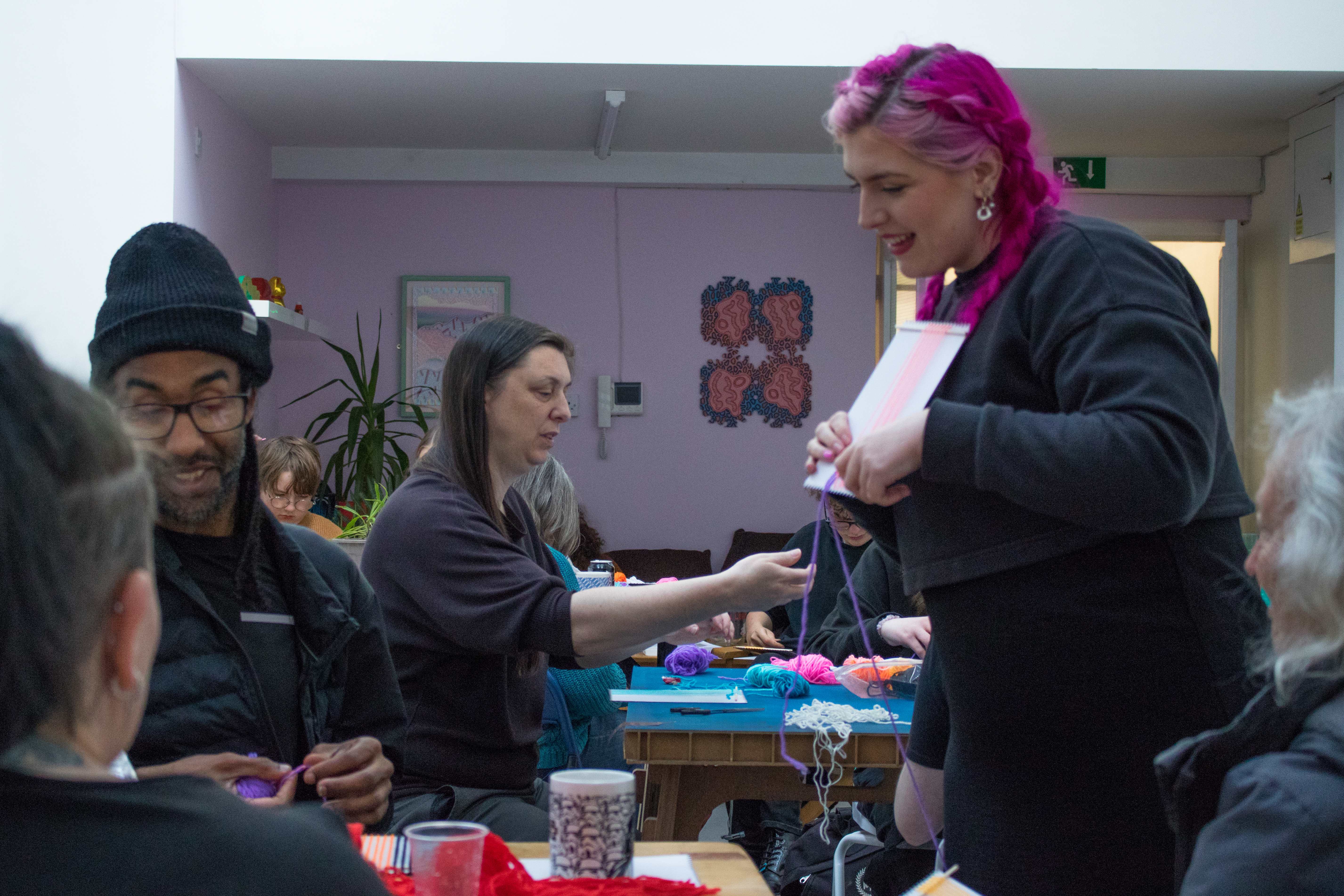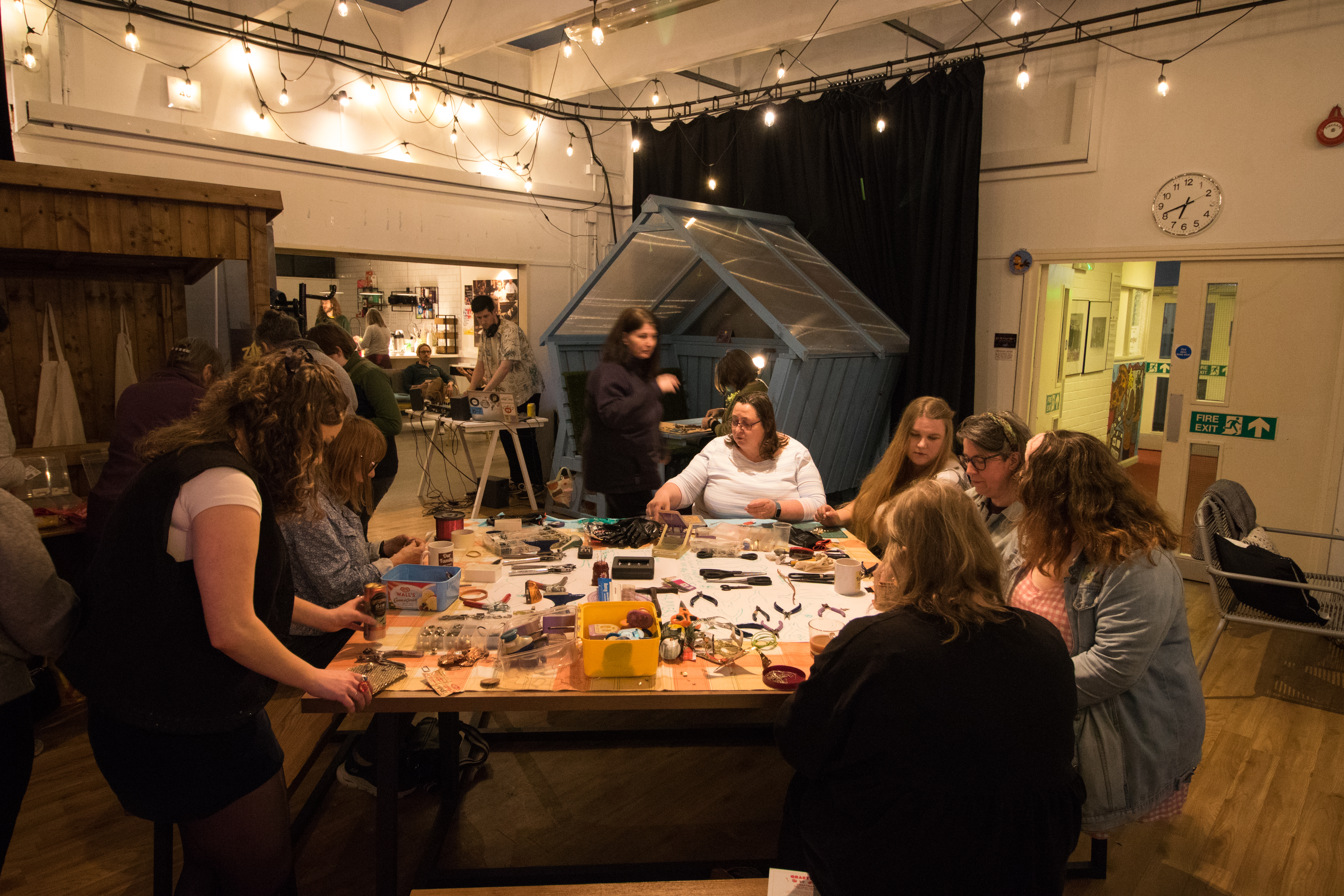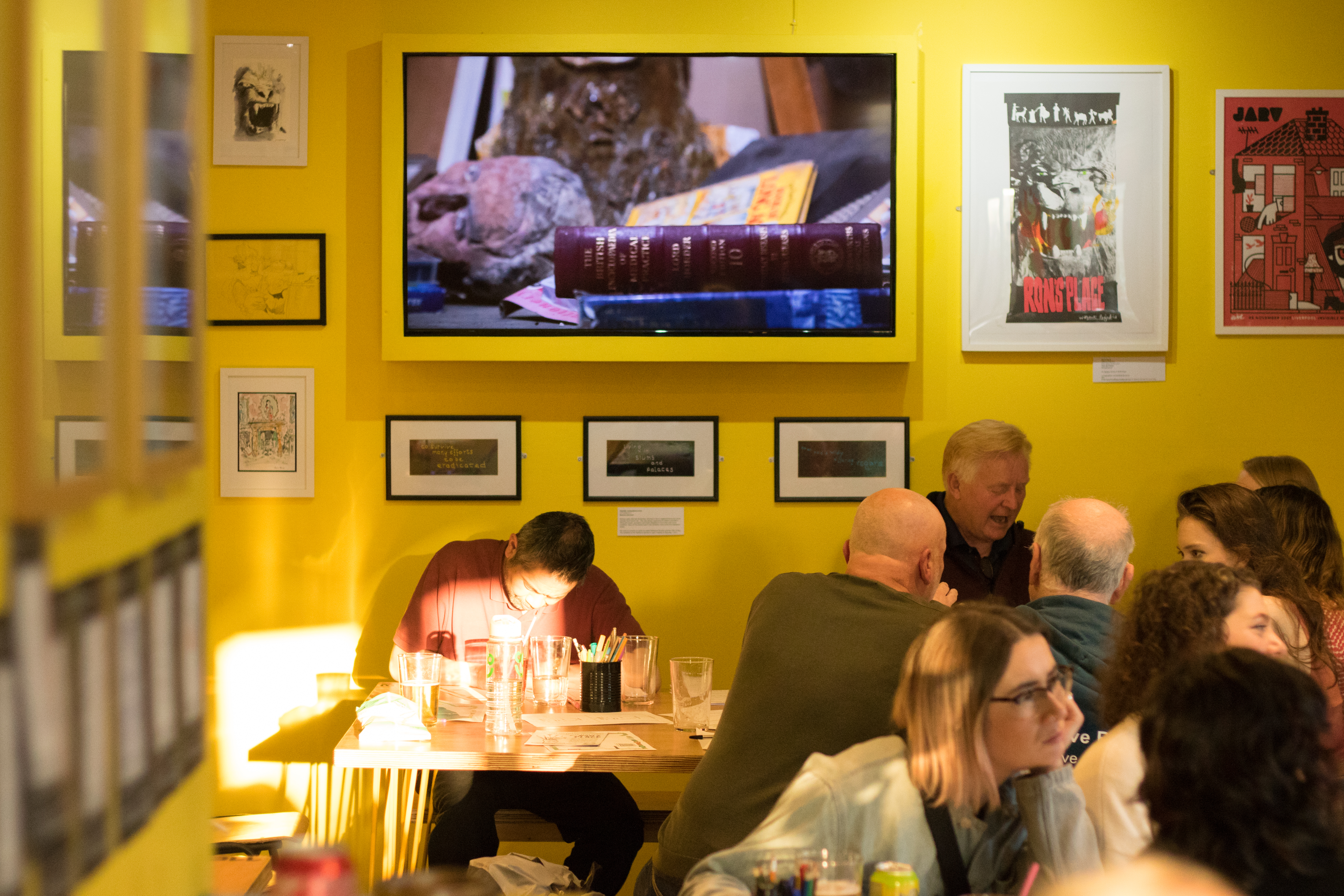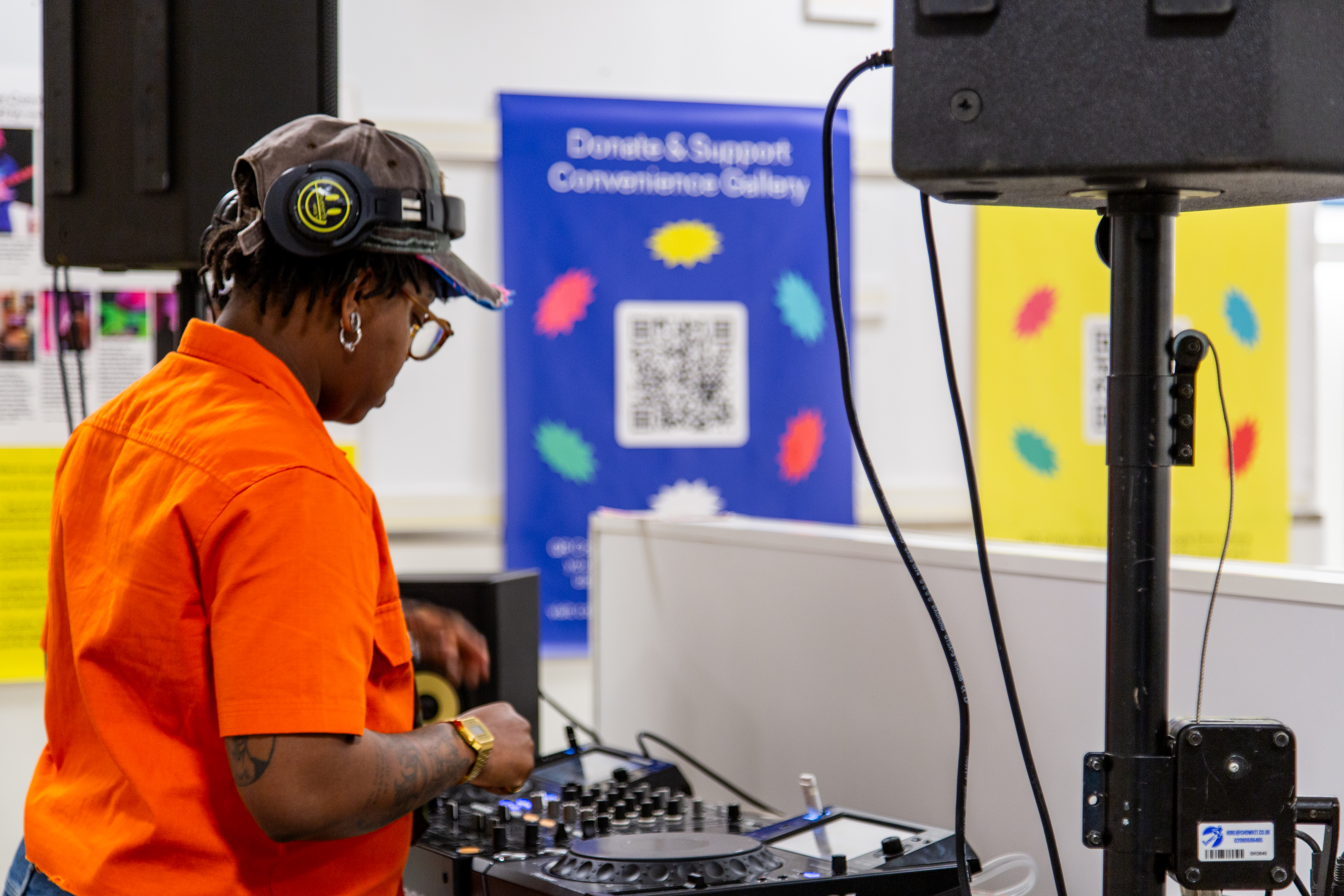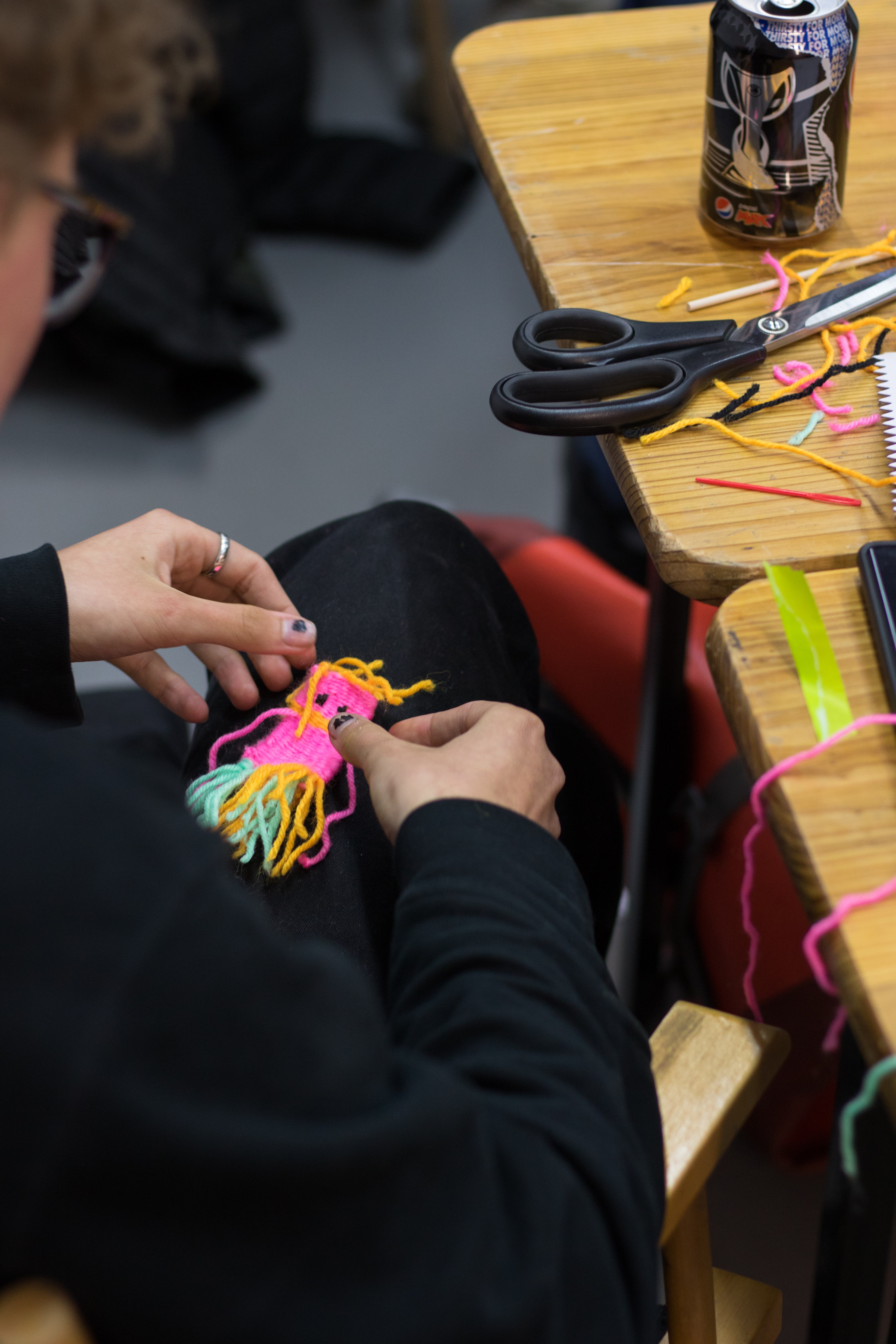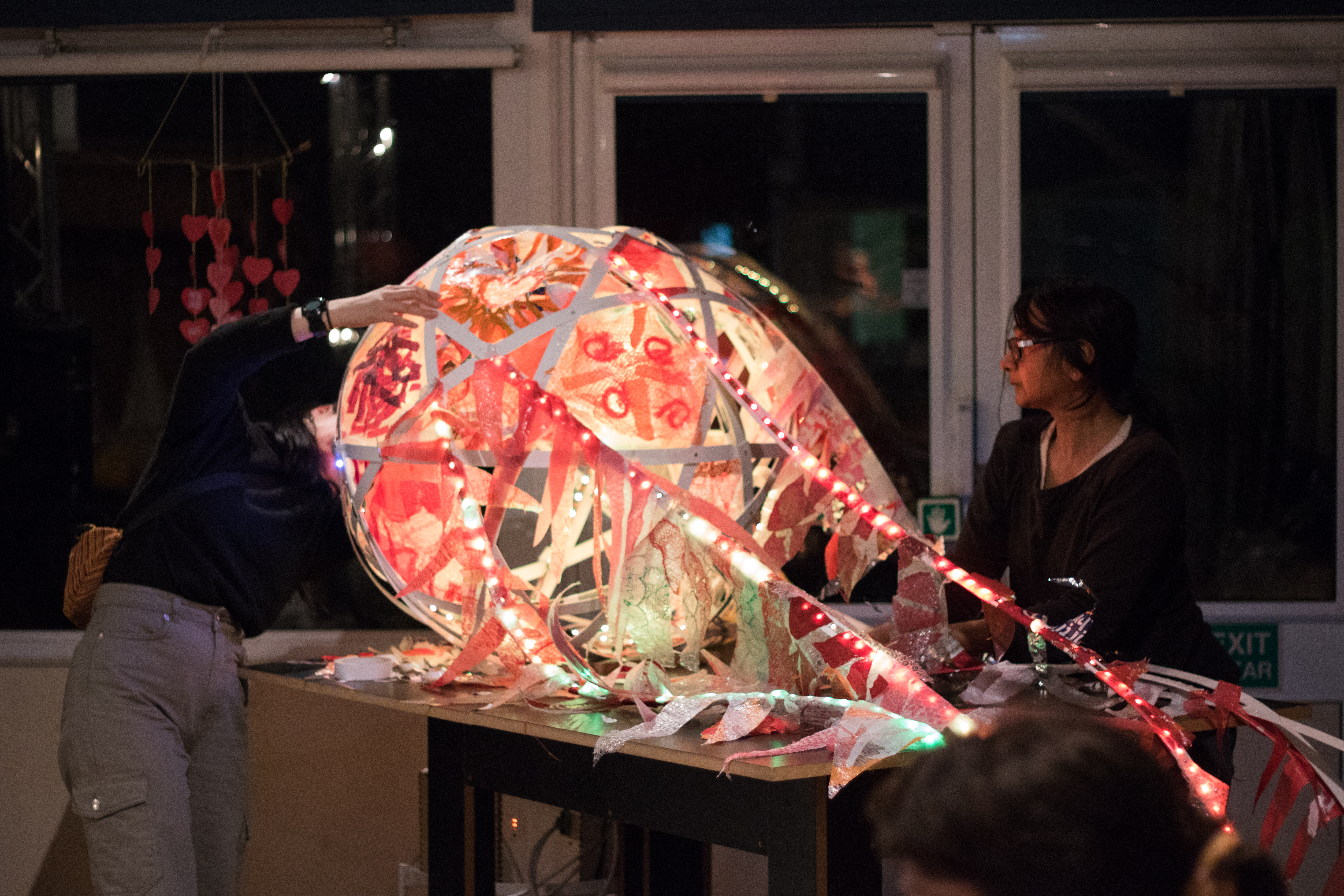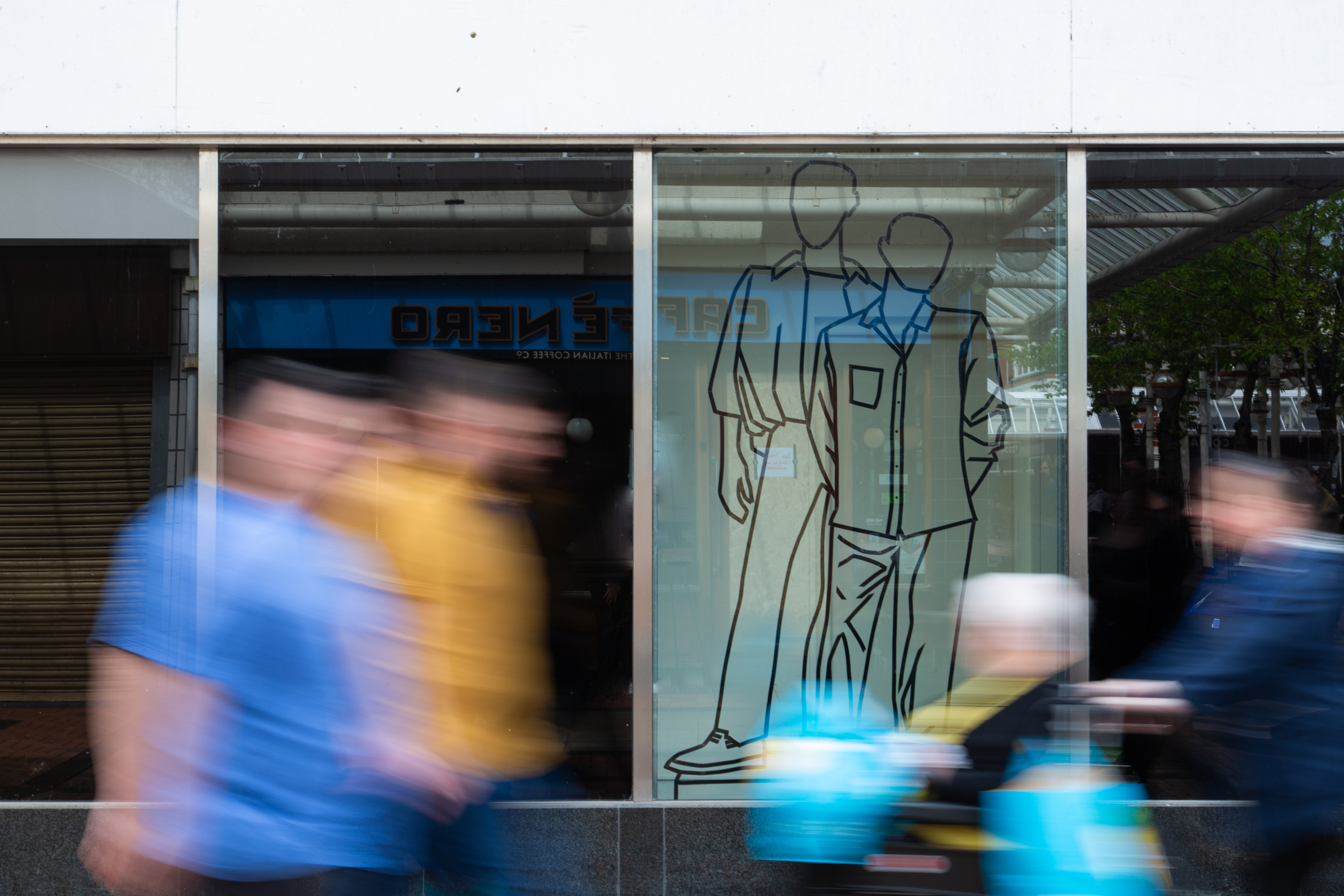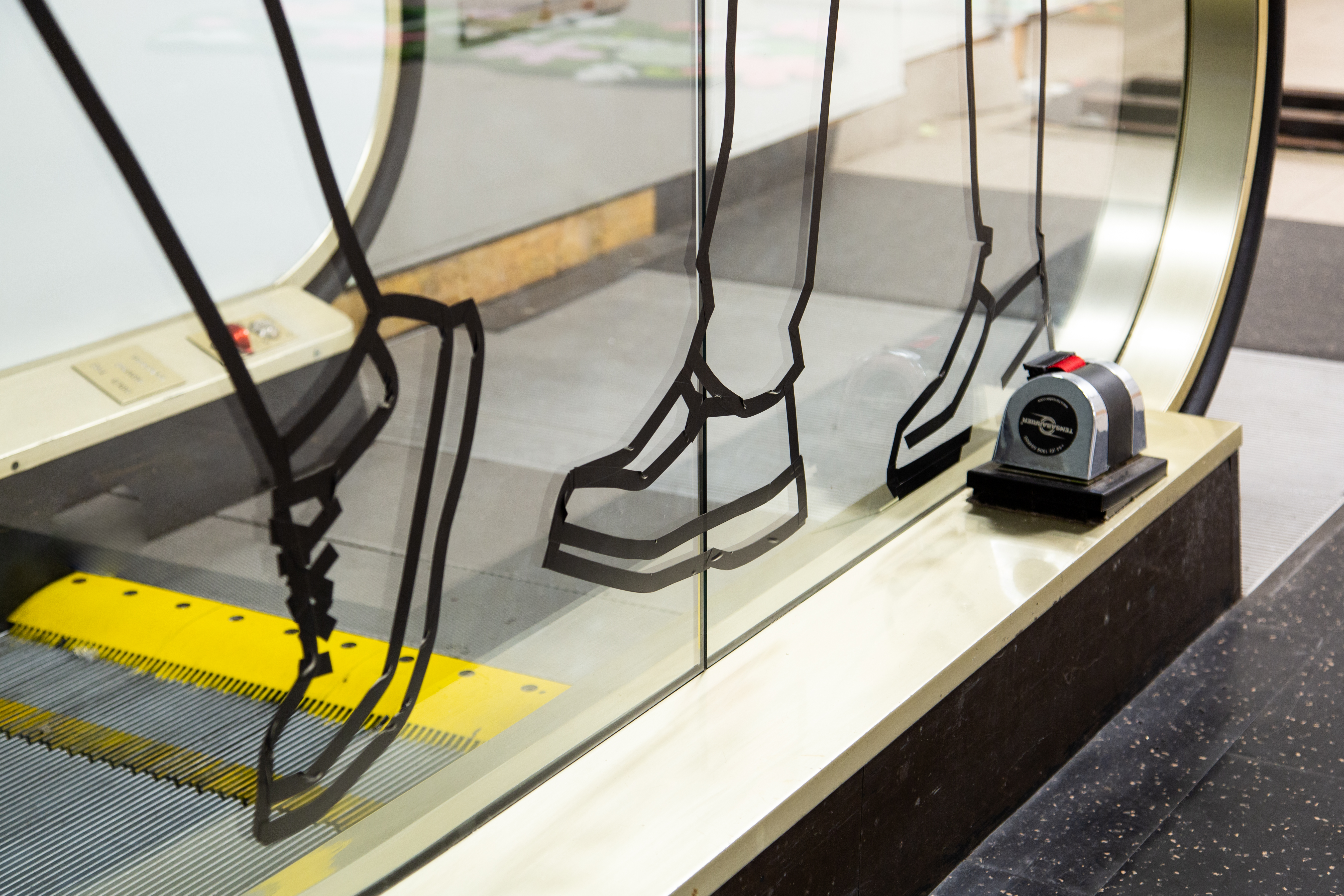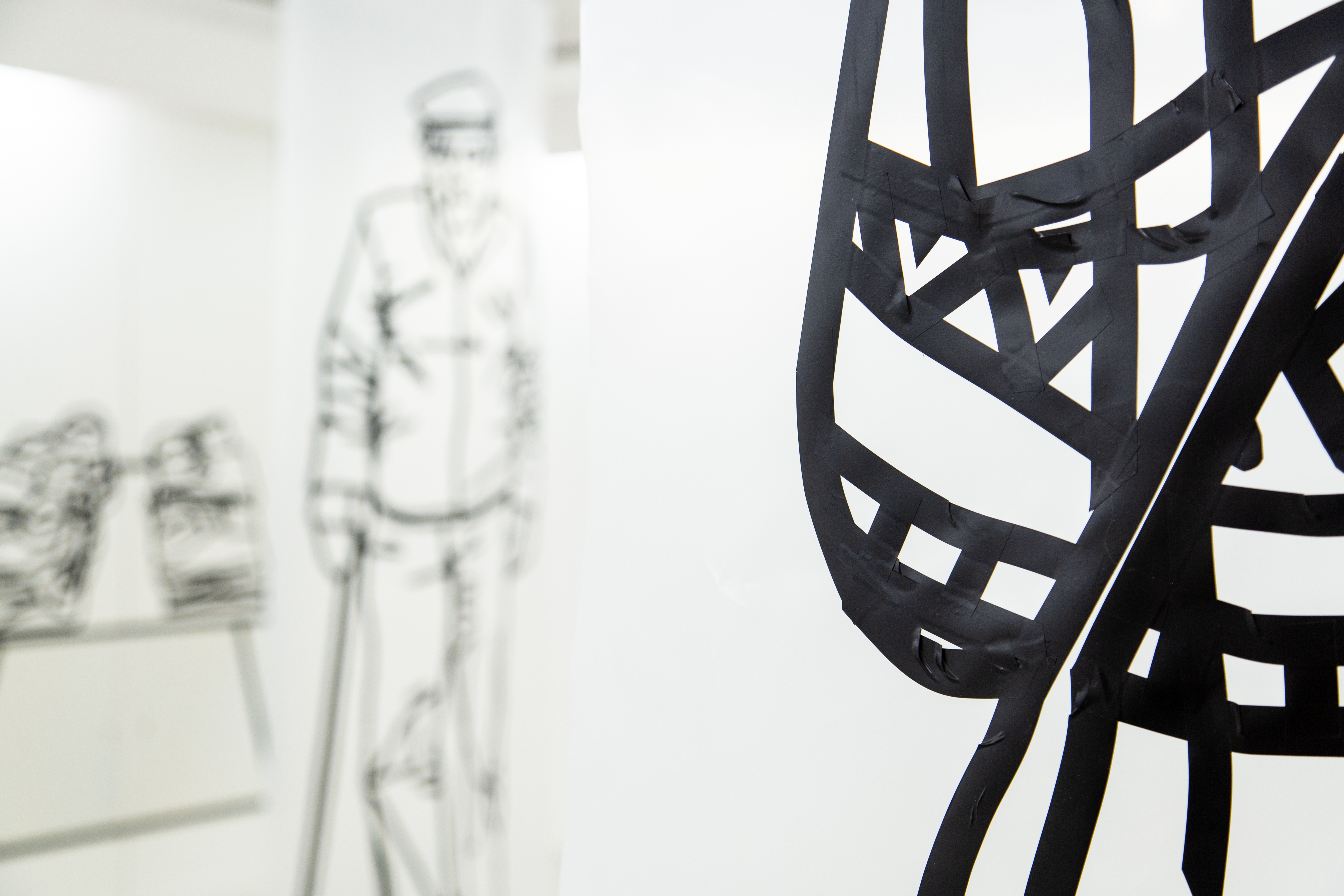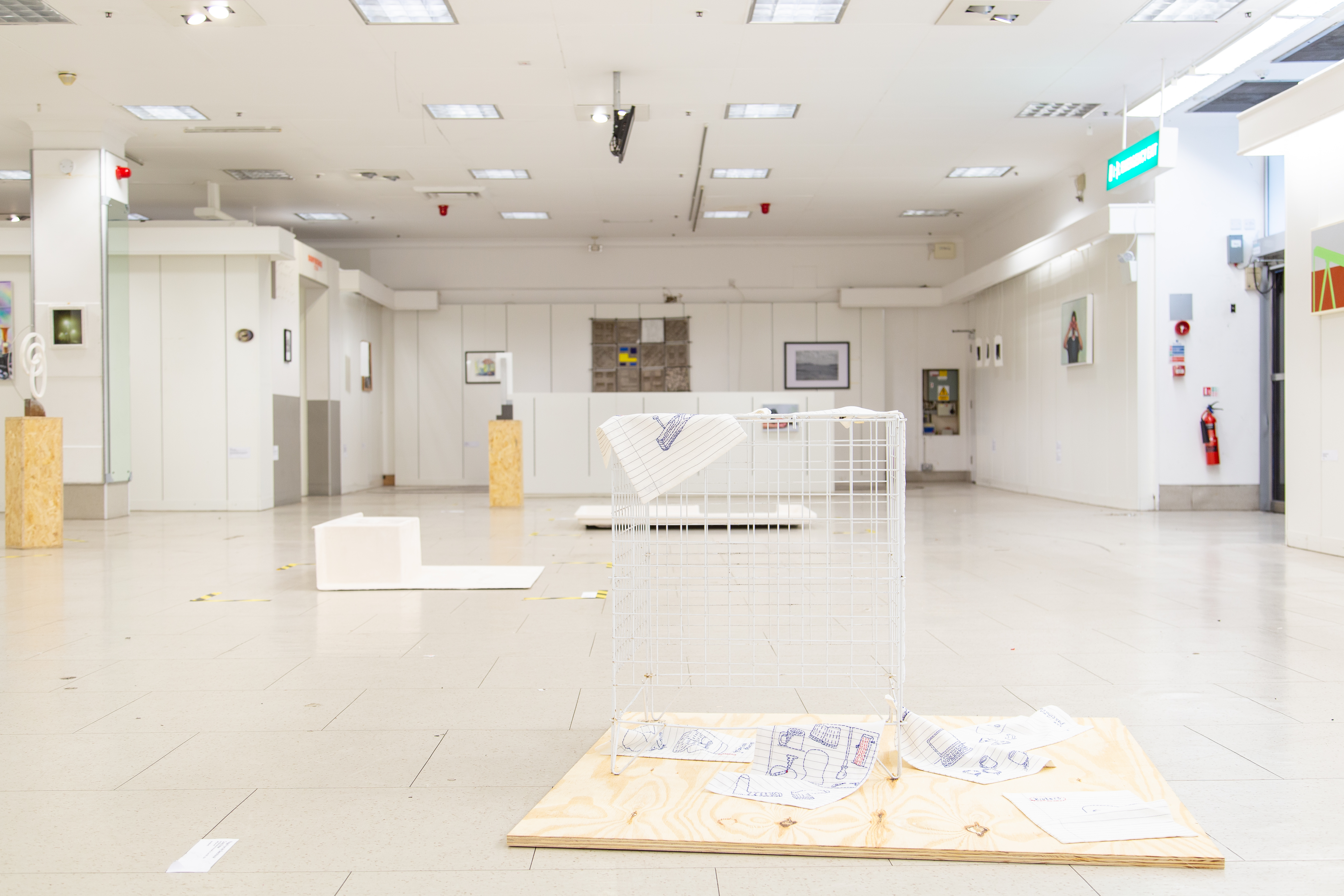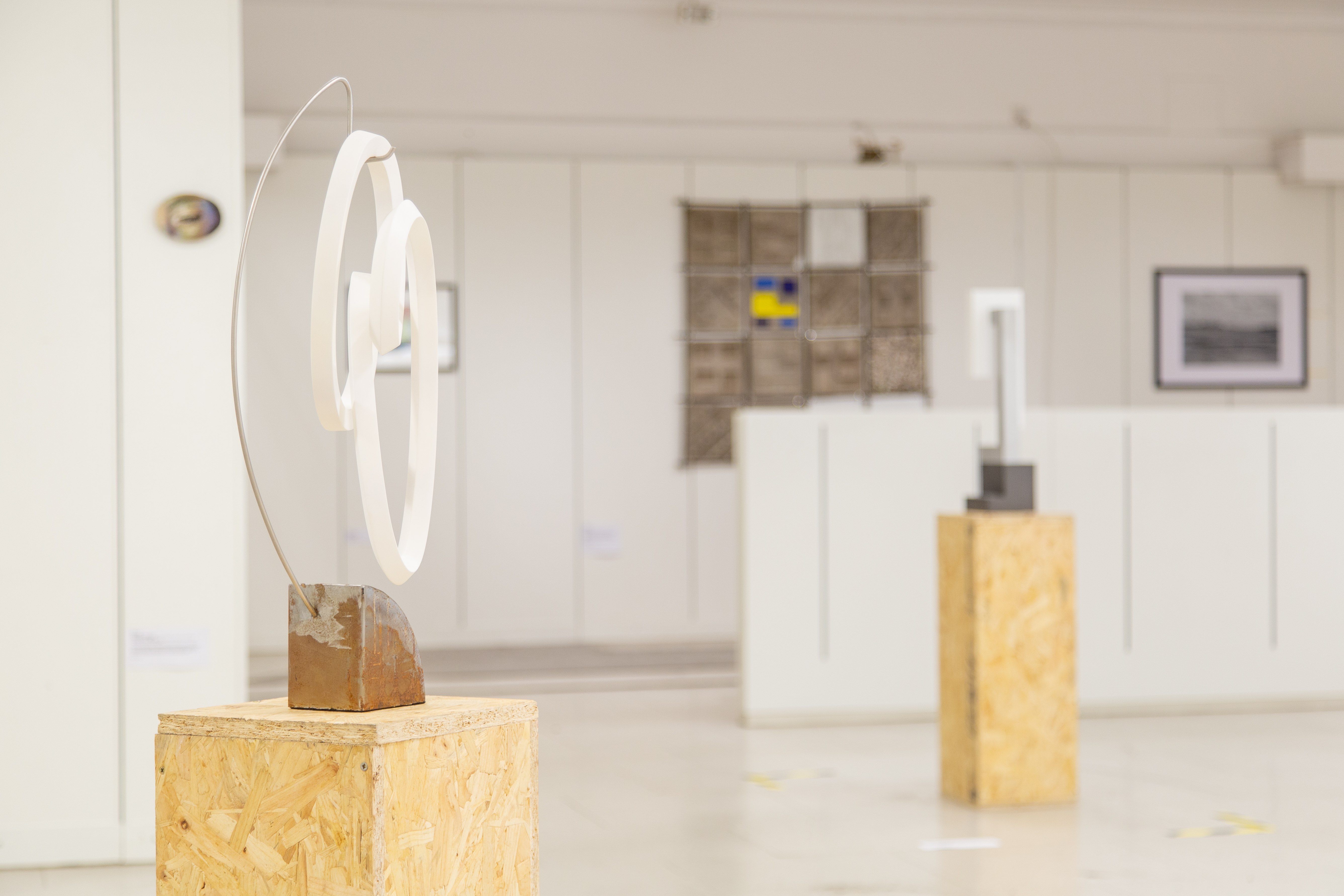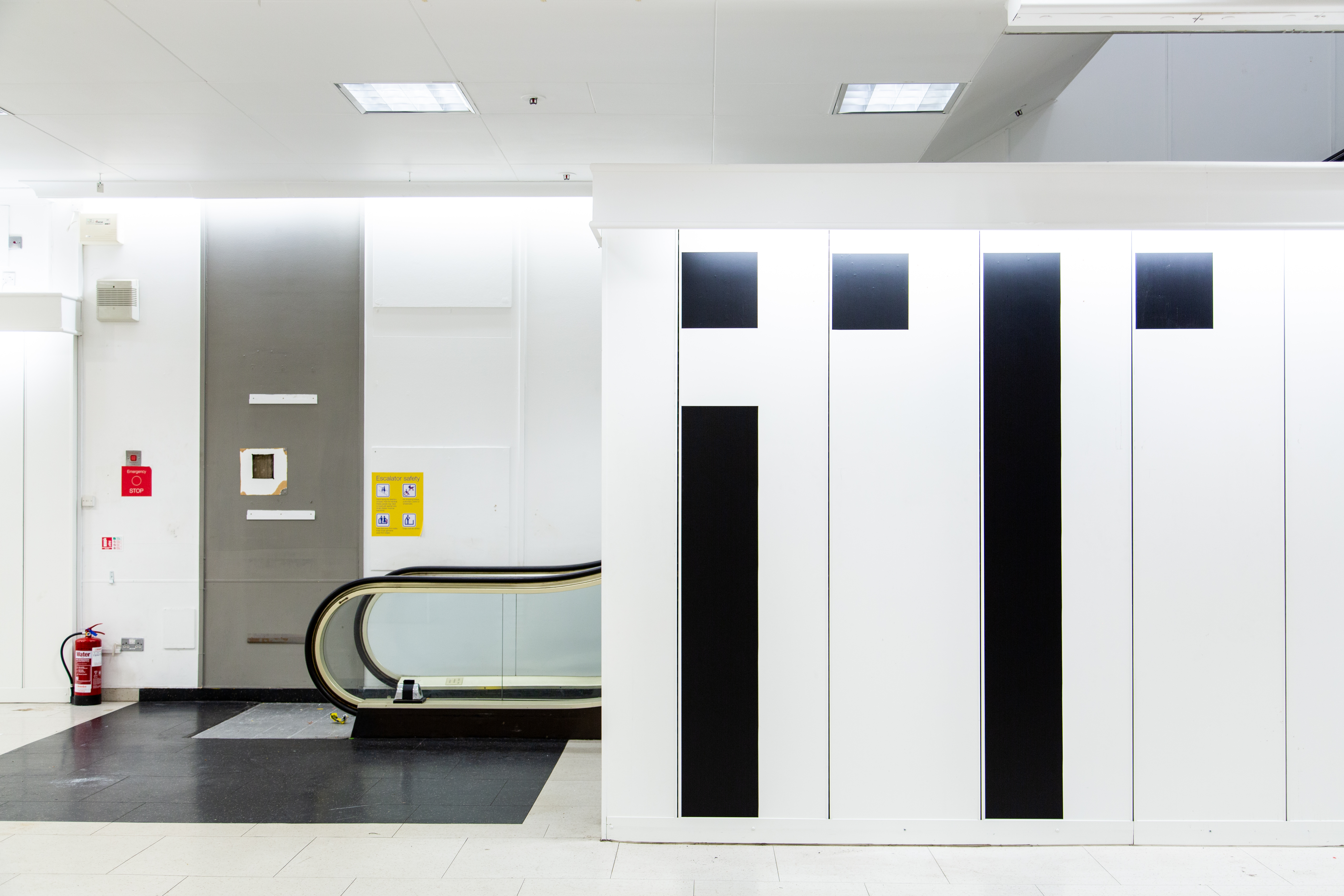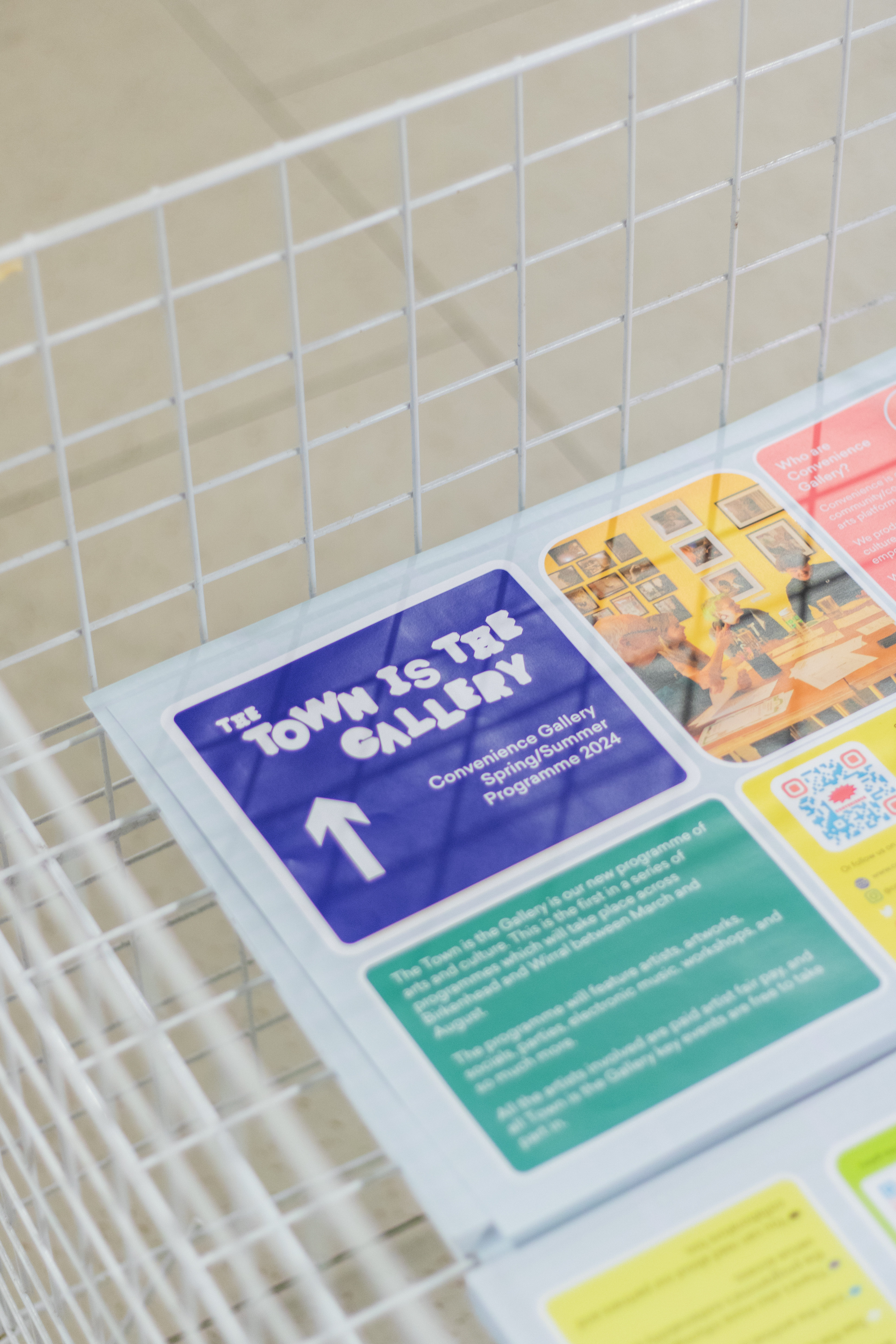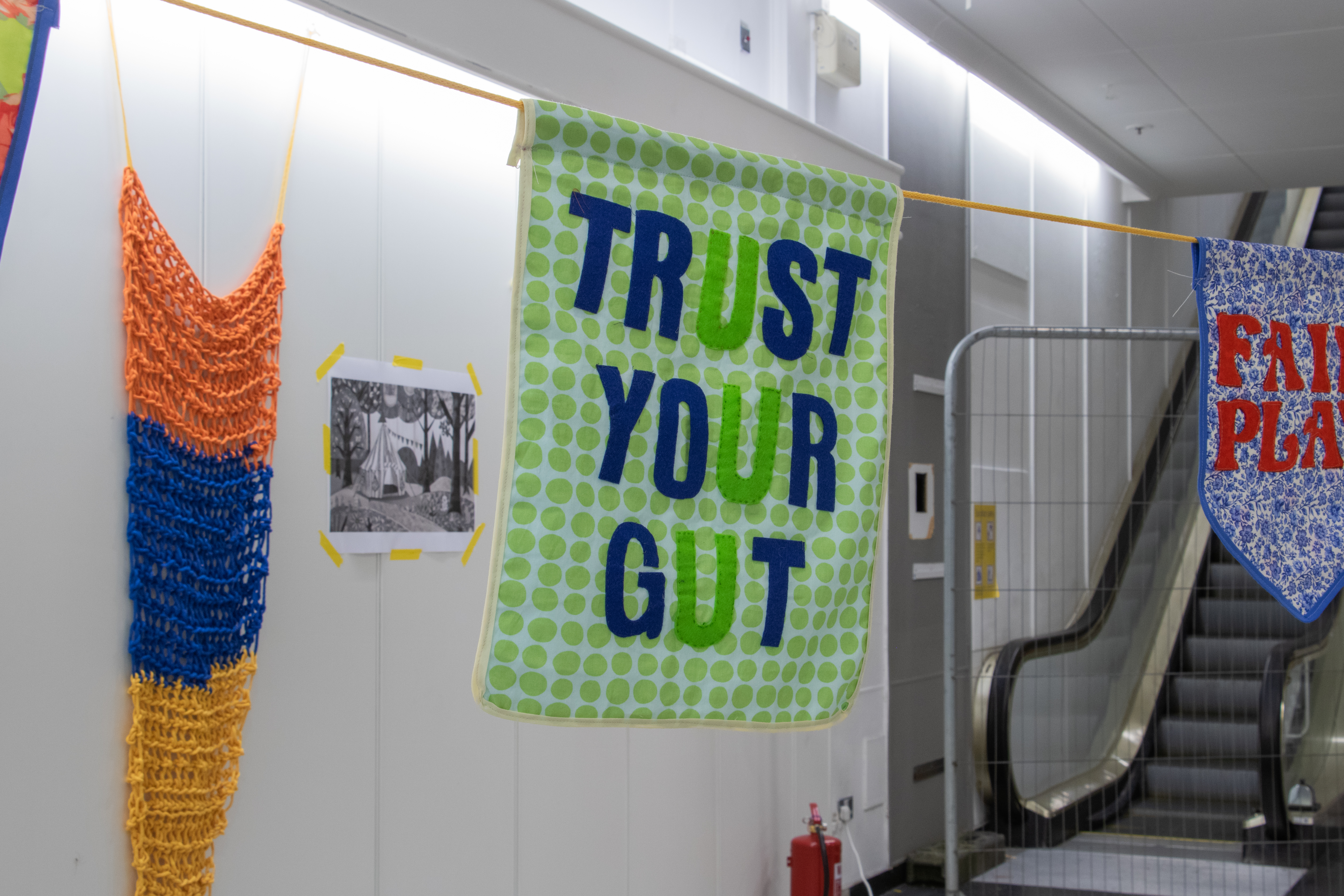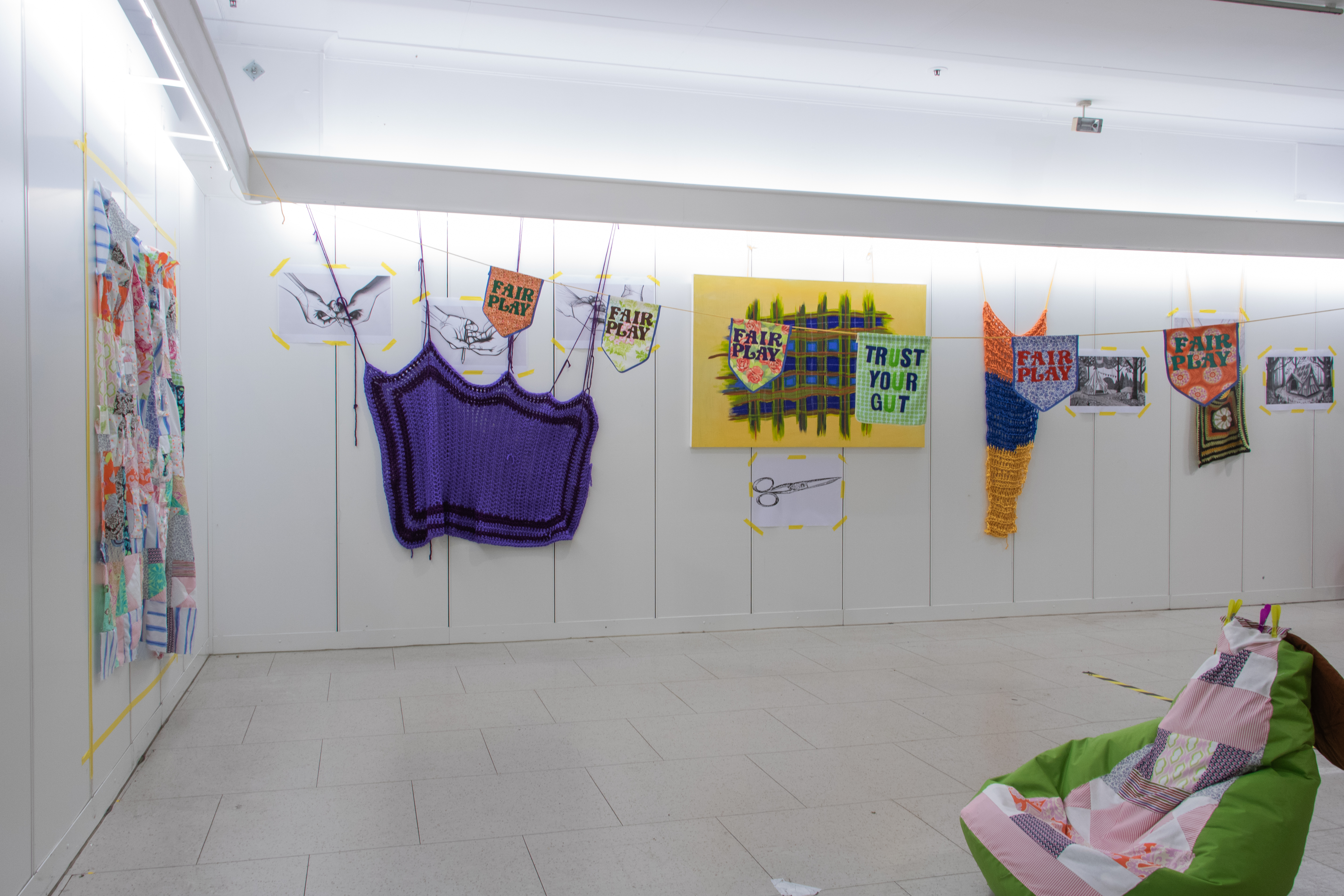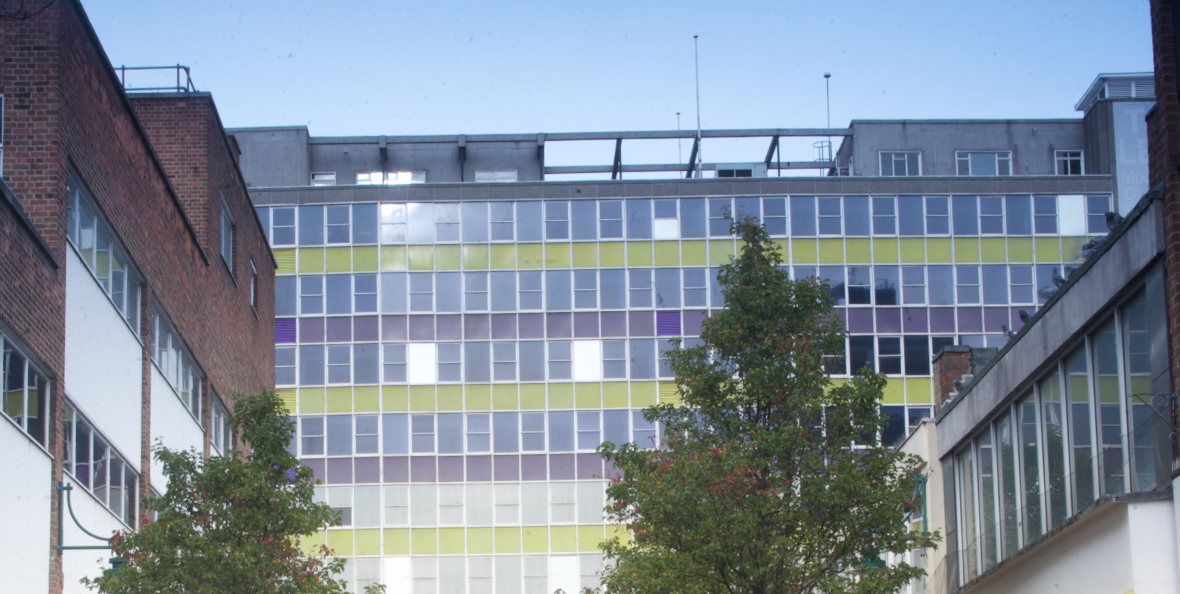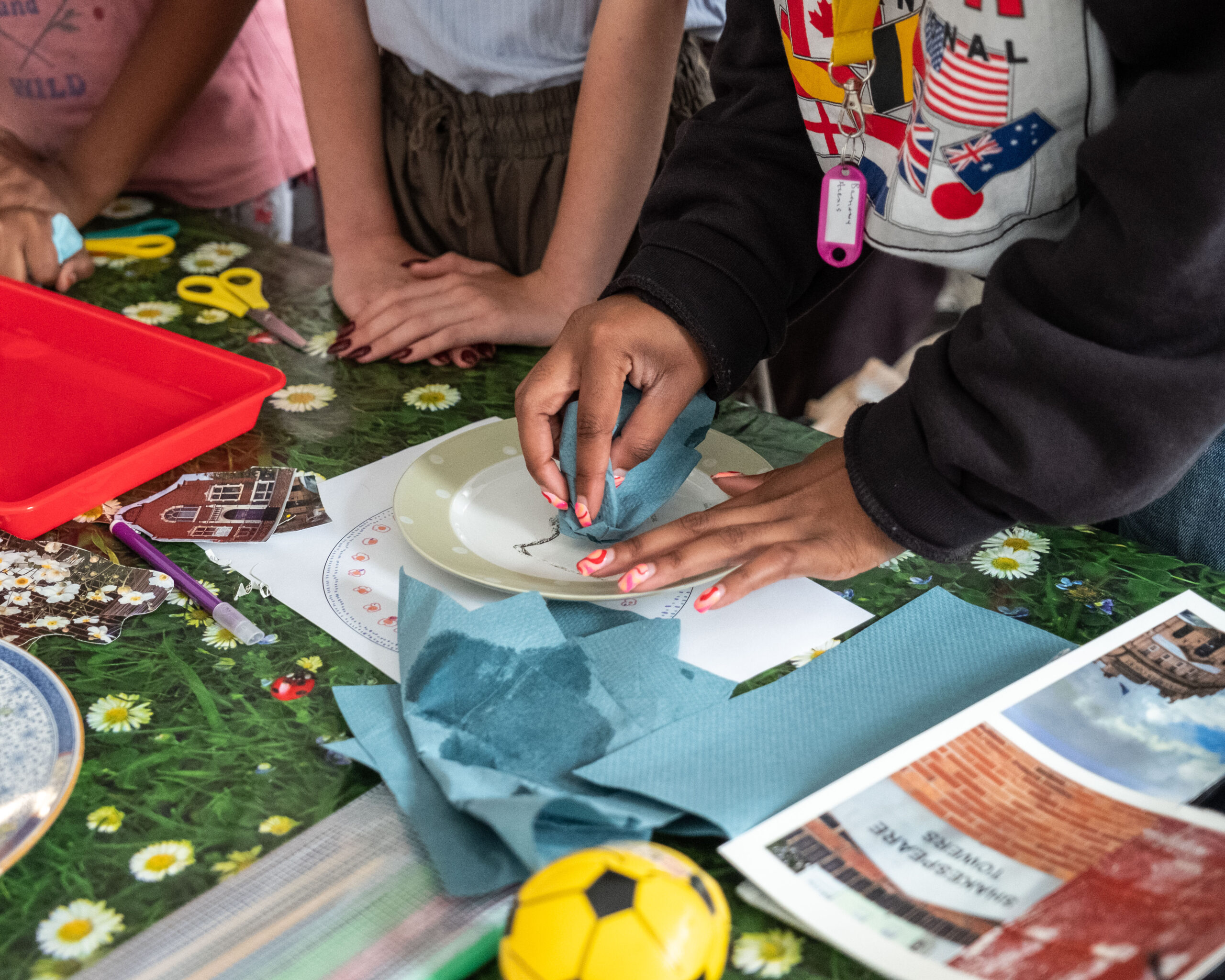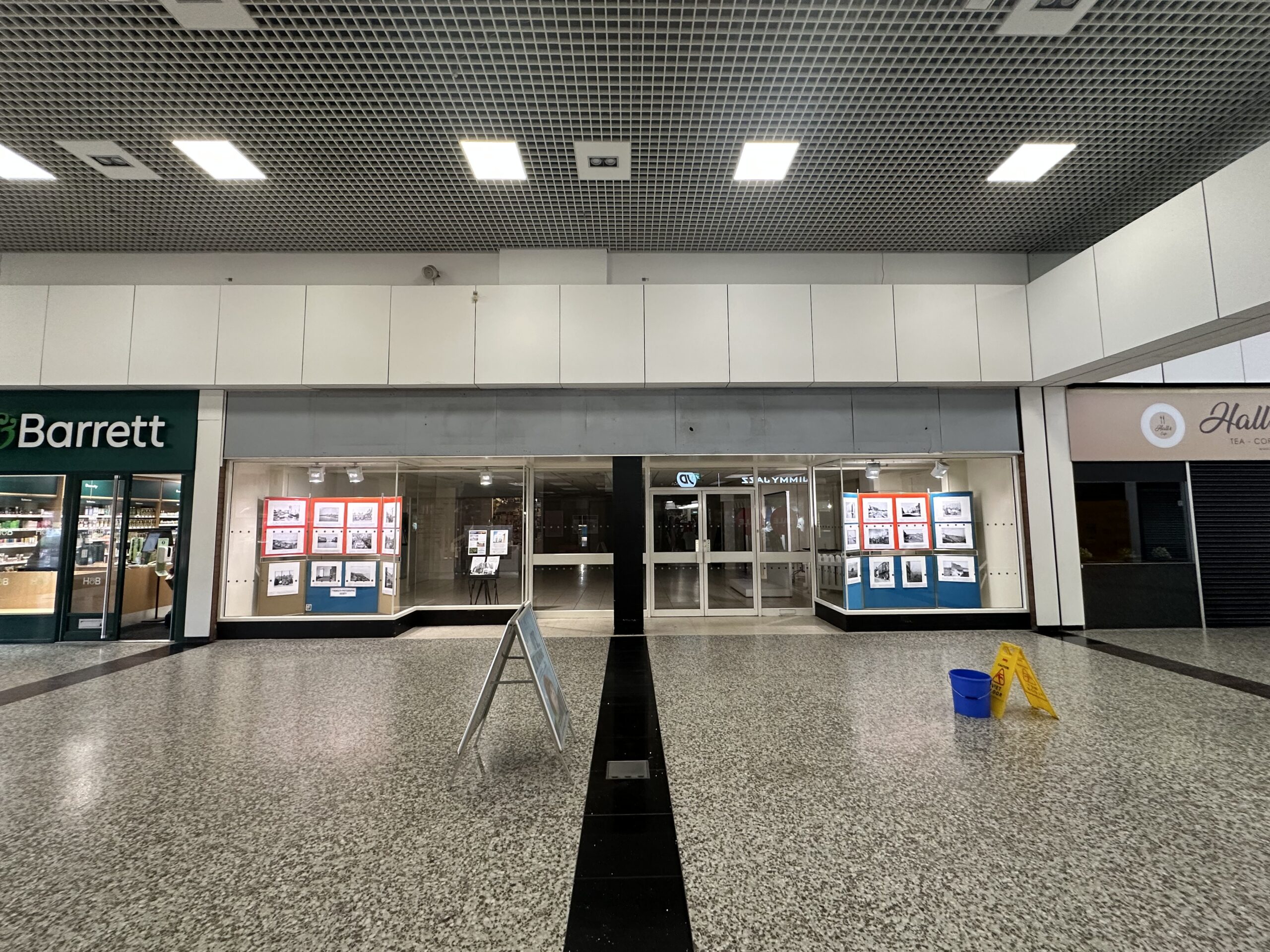Through a mixture of creative activities, we explore how Convenience Gallery uses meanwhile space as a driving force for creative activity.
Meanwhile space supports a large section of the arts – from studios right through to community workshops and exhibitions through flexible space use. Convenience Gallery, in Birkenhead, is a fantastic example of how space can be used, connecting with a diverse range of communities in their area through creative activities.
Founded in 2019 in Birkenhead Market by Andrew Shaw and Ryan Gauge, Convenience Gallery emerged from a grassroots desire to engage the community in creative practice. Initially granted a six-week tenancy in an unused retail unit, the organisation quickly demonstrated its potential, sparking conversations about the needs and challenges of the local arts landscape. Their early approach was driven by open calls and public consultation, ensuring that the space responded to the desires of residents.
‘We ended up doing a lot of open conversations and call-outs just to see what people wanted and to try and understand the challenges in the area.’
Their success in those early weeks led to an extended six-month lease, allowing them to develop a structured program of workshops and exhibitions. By 2020, Convenience Gallery had formalised as a CIC and began seeking larger project funds. However, COVID-19 disrupted their plans, and due to the recency of their constitution and banking issues, they initially struggled to access funding. They pivoted to secure National Lottery Awards for All funding, enabling a year-long programme of exhibitions under the banner of In Cahoots alongside youth-focused community programming.
In 2022, they won the DBACE Awards and received funding from Historic England, along with investment from Kindred LCR. This support allowed them to transition to working full-time on Convenience Gallery.
Meanwhile spaces offer a practical solution to the increasing number of vacant properties in town centres, bridging the gap between disuse and regeneration. For Convenience Gallery, this model has been instrumental in their ability to engage audiences and sustain a presence in Birkenhead. Adaptability has allowed them to transform a variety of spaces—from market stalls to a former department store—into hubs of cultural activity. At the start of 2024, through East Street Arts, they took on a large former department store in the centre of the town for creative activities.
“We wanted to figure out how we could work in lots of different kinds of spaces and take our programming directly into places where it wasn’t really happening.”
The department store was part of their The Town is the Gallery programme, which also included Birkenhead Priory and Birkenhead Central Library. By activating multiple sites, they created an immersive art experience accessible to the entire community.
“We had three venues full of art across the area. People were coming through the doors, and we could see the impact happening in real-time.”
Familiar spaces, like libraries and shops, can deepen local engagement and integrate the arts into community infrastructure in ways which established galleries and institutions can struggle with. By placing exhibitions and workshops in familiar, high-footfall locations, the gallery naturally draws in passersby who might not otherwise seek out creative spaces.
“Some of the barriers that stop people engaging with the arts are that they feel they can’t access the spaces or that it’s not for them. So bringing work directly into the community breaks that down.”
Across 2024, Convenience Gallery welcomed over 11,000 visitors to three key venues across Birkenhead in a seven-month programme. Cumulatively, they estimate more than 30,000 people have engaged with their programming to date. Workshops regularly sell out with 10-15 participants per session, and their annual film festival has sold out every year with growing audiences of 50, 100, and 150 attendees respectively. On average, throughout 2024 we received 70-100 visitors per day, a significant increase from earlier years.
Like many arts organisations, Convenience Gallery has faced significant challenges, from financial struggles to the impact of COVID-19. Their status as a relatively young organisation meant that they were initially ineligible for many of the relief funds available to established arts institutions during the pandemic.
“We’d just started, so we weren’t eligible for furlough or business grants. We had to figure out other ways to sustain ourselves.”
Despite these hurdles, they found creative solutions, forming partnerships with charities and shifting some of their programming online. Today, they face a difficult funding landscape with increasing demand for their services but diminishing support.
“At this current time the funding landscape and support for the arts feels to be at an all-time low… But reputation, attendances, community and support for artists, network and output is really at an all-time high.”
Convenience Gallery operates on the belief that arts and culture are not just aesthetic additions to a town but fundamental drivers of social and economic regeneration. By bringing art into non-traditional spaces, they create environments where creativity can thrive, fostering long-term engagement and community cohesion.
“We’ve seen people who started as visitors now working in major galleries. That journey is incredible to witness.”
Their work aligns with a broader theory of change: by providing accessible cultural experiences, they help build confidence, encourage new career pathways, and contribute to the vitality of their local area. Their engagement with a diverse and predominantly young audience (over 71.5% aged 0-34) underscores their impact on the next generation of creatives.
As they navigate an increasingly challenging funding landscape, Convenience Gallery is focusing on sustainability and long-term planning. Through this, they were strengthening their documentation of past projects and supporting the Independent Biennial alongside the Liverpool Biennial.
“We’re taking a bit more time to plan, making sure we can deliver projects in a way that keeps the joy and energy alive for everyone involved.”
Despite the uncertainties, their commitment to creating meaningful cultural experiences remains unwavering. Their success in engaging communities through meanwhile spaces demonstrates the transformative power of the arts in shaping our towns and cities.
Like many others in the sector, 2025 has been especially hard for Convenience Gallery in terms of funding, and after six years of activity, they have taken the difficult decision to close Convenience Gallery as a business. They will both continue with the practices, the learning, working within the communities and building networks of partners and collaborators.
We hope that they can continue in the future, but also want to recognise that even some of the most successful and engaging organisations are struggling in the current climate.
Find Convenience Gallery: conveniencegallery.org | @conveniencegallery

